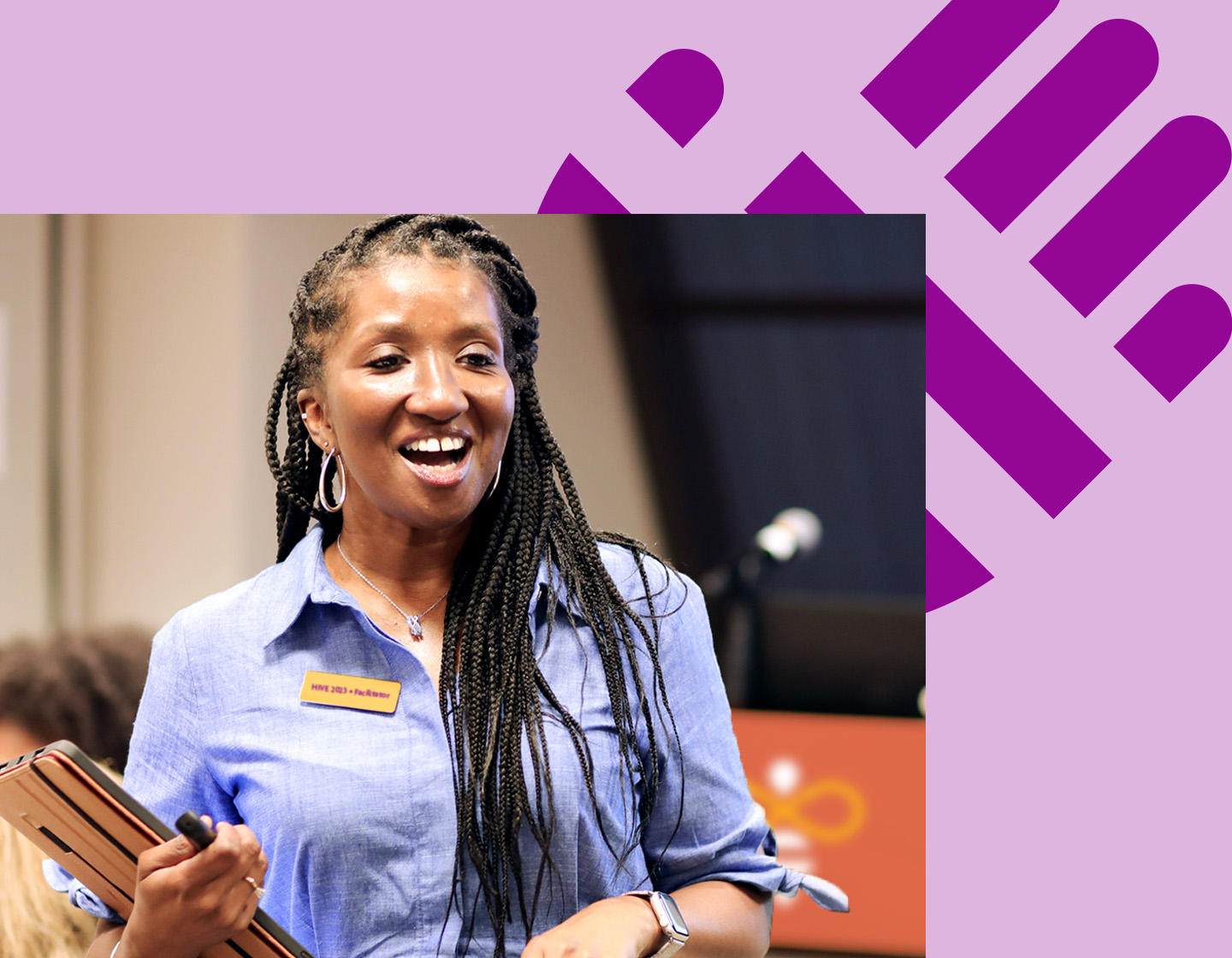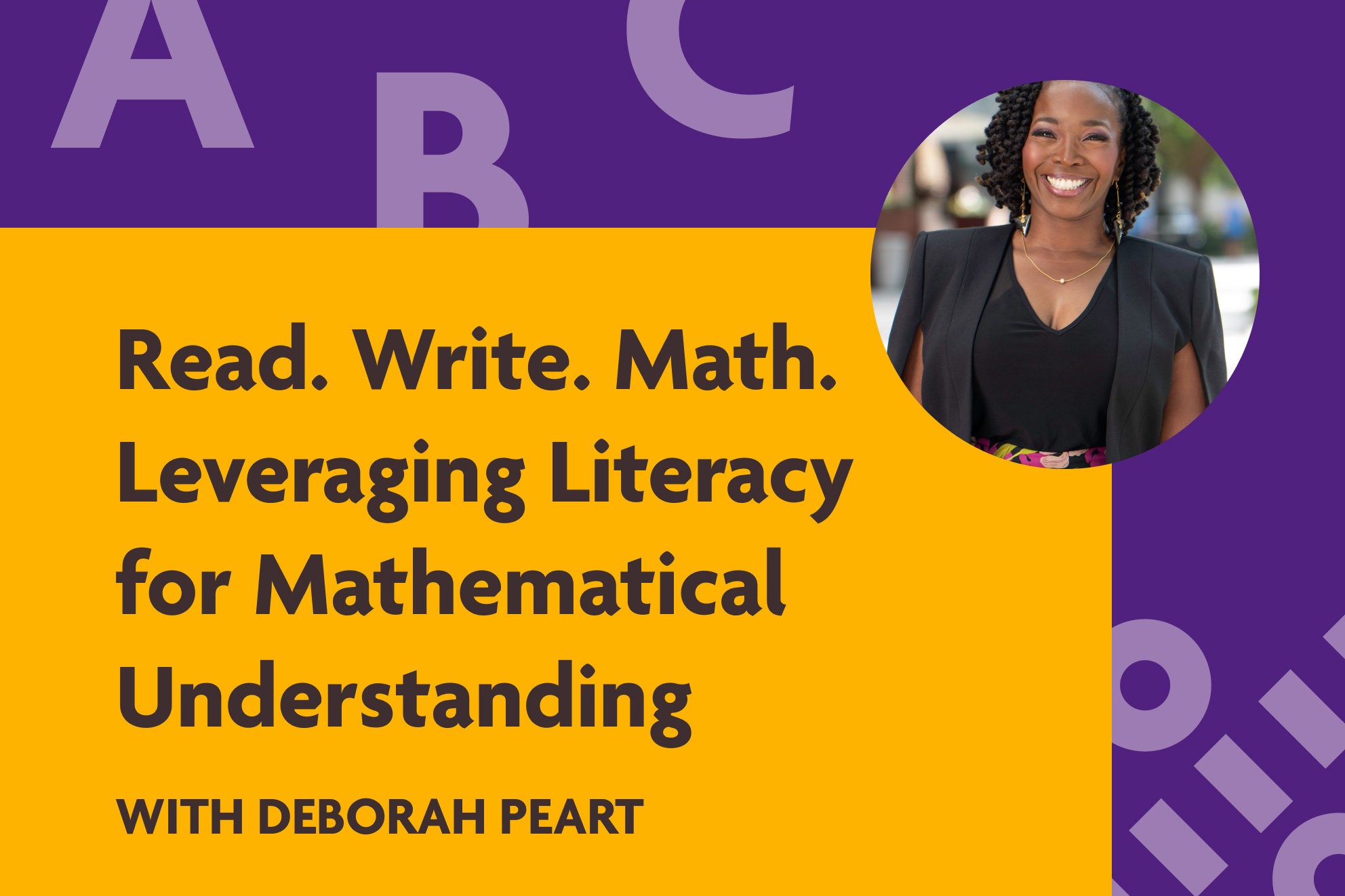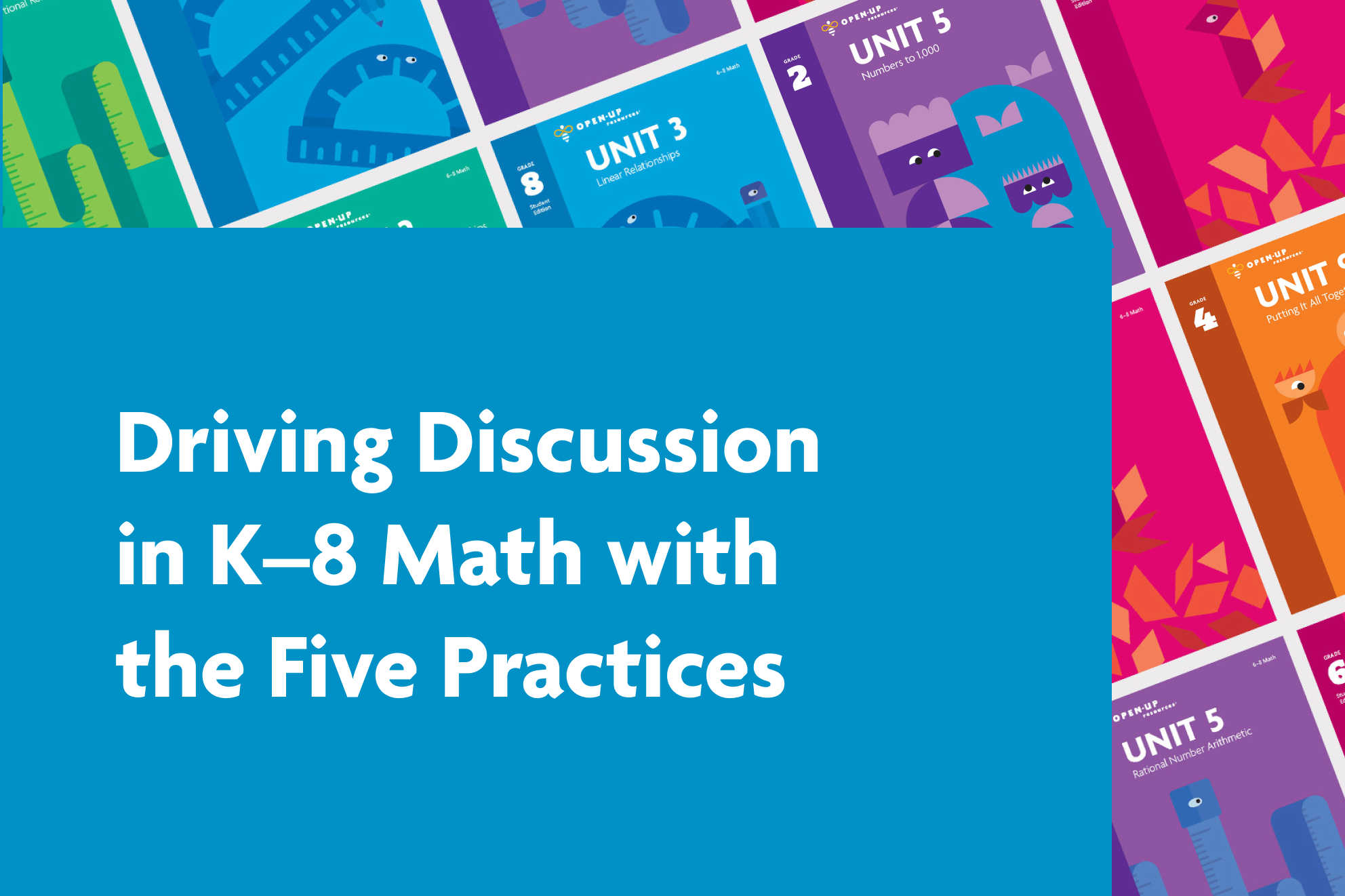As student-centered educators, we understand the importance of discourse and collaboration in the math classroom. But often, even with our best efforts to encourage and model conversation, we find that children struggle to get started. They may not be sure how to talk with one another in a meaningful, productive way.
The Mathematical Language Routines (MLRs) found in Open Up Resources K–8 Math give learners a purpose for talking, and structures and supports to engage effectively in discussions with others. Here is why you don’t want to miss learning more about these Math Language Routines in our Fall 2023 live online series.
Upcoming Mathematical Language Routines (MLRs)*
Launching Learning with Math Language Routines
October 2, 2023 | 7:00 – 8:30 pm
Supporting the Synthesis with Math Language Routines
October 16, 2023 | 7:00 – 8:30 pm
Comparing and Connecting Using Math Language Routines
October 23, 2023 | 7:00 – 8:30 pm
*All event times below are Eastern Time Zone.
The MLRs benefit every child in the classroom, not just multilingual learners.
While the MLRs certainly help multilingual learners with access and language development, these routines are designed for all students in the classroom. Every kid is more motivated to converse with a peer when given a specific reason for discussion, and every kid will better internalize a mathematical concept when they are talking about it, asking questions, critiquing, and reflecting with language. With the MLRs students also have opportunities to work within all 4 domains of language; they are not only using oral language, but listening, reading, and writing, depending on the routine.
Increased student engagement.
In addition to increasing access and understanding for all children, the Mathematical Language Routines increase interest and engagement. In MLR4: Information Gap, students play a mathematical version of Guess Who? where they must ask detailed questions in order to obtain missing information that a partner holds about a problem. In MLR1: Stronger & Clearer Each Time, students get to meet and talk with more than one classmate, they can move about the classroom, and they see their own growth in a final draft that they create. Other routines involve gallery walks, brainstorming any math question in the world that a student may want to answer, and use of real-life pictures, videos, and realia. Sounds fun, right? YOU will get to engage in these routines yourself as a part of the MLR course! We will share classroom photos and videos of the routines in action with OUR students as well, to further make them come to life.
Use of the MLRs transforms the student experience and leads to a more equitable mathematics classroom.
We are constantly striving for equity and to positively shape math identities and experiences for kids. The Math Language Routines are one concrete strategy for achieving this. Many of the MLRs, by design, transfer power away from the adult and to the children themselves. Students are doing the explaining, the clarifying, and sharing their knowledge with one another, leading to new understandings, versus the teacher “telling” or “giving” them information. The Math Language Routines allow learners to ask questions and make connections to images and problems before being asked to solve anything, lowering the pressure or anxiety that we know a lot of children feel in a math classroom. Finally, the MLRs push us beyond acknowledging and honoring students’ language and cultures, and support us in actually utilizing these funds of knowledge in the learning process. Come and see how!
We can’t wait to have another group of educators learn with us this year!
Teachers from the ‘22-23 school year workshop have spoken, and here is what they have to say about the learning around the MLRs:
- “I did not expect to learn things that I can immediately implement into my classroom – many workshops provide ‘ideal’ mathematical strategies, etc. that require lots of resources and practice, whereas I feel I can easily use what I learned tonight to change the way I plan and teach!”
- “I love working through the routines with other teachers. I learn from them just like my students learn from one another when they do the MLRs. It really proves the point.”
- “This session makes me feel more confident incorporating MLRs into my classroom.”
- “I appreciate the format of this workshop and love that you have us practicing what you’re preaching! Thank you!”
- “I really love the MLRs and how user-friendly and student-centered they are! I also appreciate that they can be applied in any classroom regardless of the curriculum! Thank you so much for this workshop series.”













